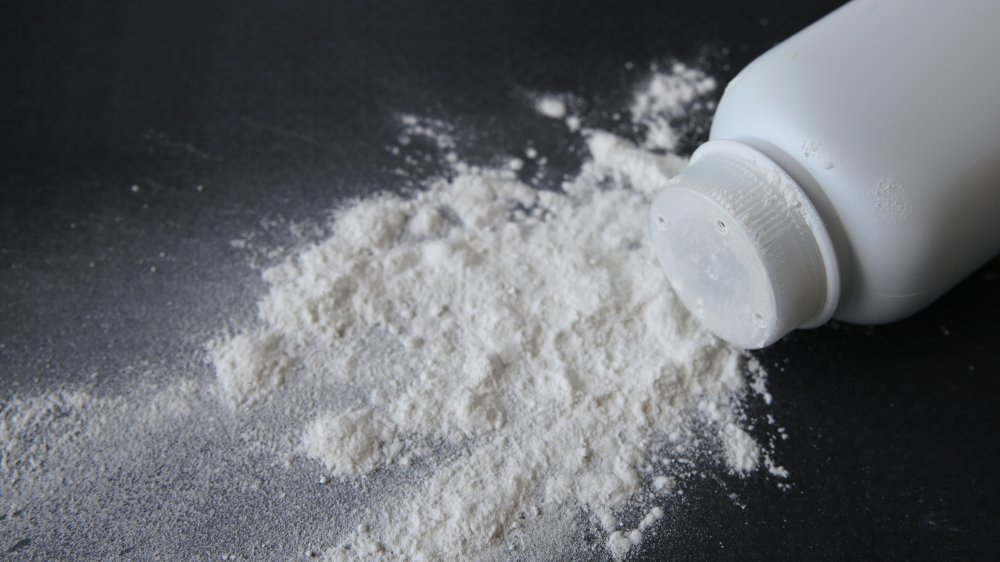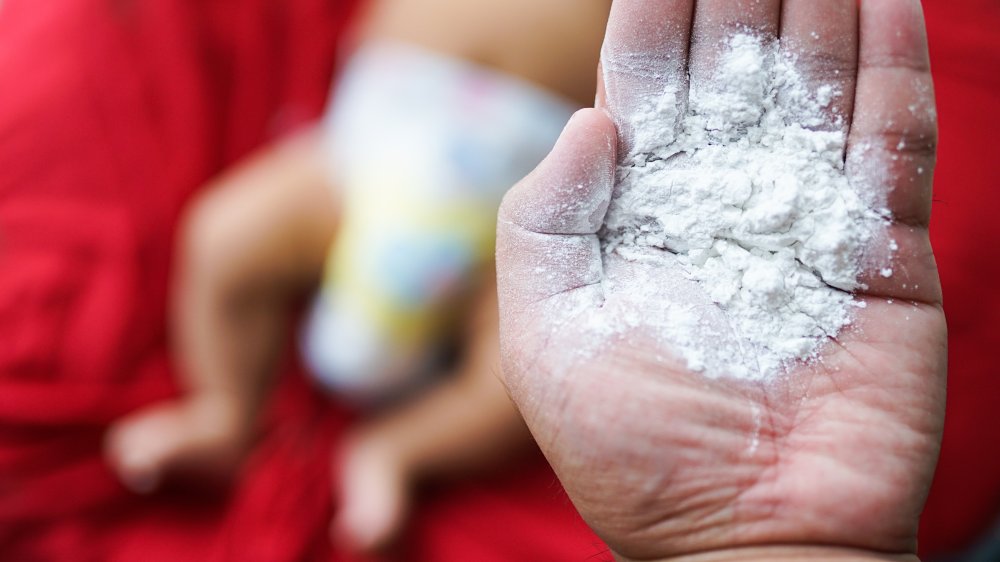The Real Reason Johnson & Johnson Isn't Selling Baby Powder Anymore
We may all have fond memories of having Johnson's Baby Powder around when we were growing up, but those memories are likely tinged with a bit of concern today, because thousands of women have come forward in recent years to say that the talc variety of the company's baby powder caused them to develop ovarian cancer later in life. Thanks to those claims, the company had been ordered to pay billions of dollars related to lost legal battles (via NPR).
Now after years of defending its talc-based Johnson's Baby Powder against accusations that it was unsafe, Johnson & Johnson has decided to give up and stop selling the product in the U.S. and Canada. But the move won't prove to be too disruptive, as J&J had already stopped making talc-based baby powder back in March, when the company said it would focus on products that were needed in the fight against the coronavirus (via USA Today). Aside from talc-based baby powder, J&J makes consumer health products, medical devices, and medicines like Tylenol (via Johnson & Johnson); the company is also currently working with the National Institutes of Health to develop a COVID-19 vaccine.
J&J will continue to sell its talc baby powder in other global markets
J&J says their decision to pull talc baby powder has nothing to do with claims that the powder could cause health problems. "Demand for talc-based Johnson's Baby Powder in North America has been declining due in large part to changes in consumer habits and fueled by misinformation around the safety of the product and a constant barrage of litigation advertising," Johnson & Johnson said in a statement. Their clam that the product was hurt by misinformation contradicted a report by Reuters that said J&J knew, and were worried about, the fact that their product could sometimes test positive for asbestos, which can cause cancer.
While Johnson's talc-based baby powder will be disappearing from U.S. and Canadian shelves, cornstarch-based baby powders will still be available domestically. But talc baby powder isn't disappearing completely because it will continue to be sold overseas. "Johnson & Johnson remains steadfastly confident in the safety of talc-based Johnson's Baby Powder," the company said in a statement. "Decades of scientific studies by medical experts around the world support the safety of our product.”
While J&J says there was no connection between baby powder and ovarian cancer, the American Cancer Society has said the results of an extensive study were inconclusive, as have other inquiries, which also offered up mixed findings.

